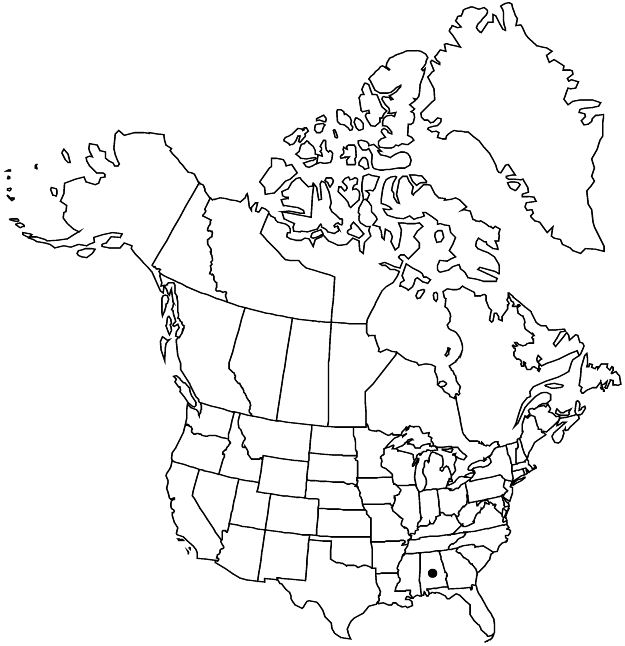Crataegus eximia
Biltmore Bot. Stud. 1: 62. 1902.
Shrubs or trees, 30–40 dm. Stems: twigs: new growth reddish green, 1-year old reddish-brown, older gray; thorns on twigs slightly curved, 2-years old blackish gray, usually fine, 3–4 cm. Leaves: petiole length 25–40% blade, densely stipitate-glandular (at least young); blade ovate-rhombic to ovate-trullate, 4.5–6.5 cm (flowering) to 8 cm (mature), base cuneate to broadly cuneate, lobes 3 or 4 (or 5) per side, sinuses deep, lobe apex subacute to acute, angled, margins finely serrate, veins 5 or 6 per side, apex acute, adaxial midvein scabrous young. Inflorescences 4–6-flowered; branches glabrous; bracteoles caducous, very narrowly obovate, ± membranous, margins glandular. Flowers 22–25 mm diam.; sepals narrowly triangular, 4–5 mm, margins finely glandular-serrate; anthers cream; styles 3 or 4. Pomes red, orbicular, 8–12 mm diam.; sepals spreading; pyrenes 3–5.
Phenology: Flowering late May; fruiting Sep–Oct.
Habitat: Rocky woods and glades
Elevation: 200 m
Discussion
Of conservation concern.
Known only from the flowering type specimen and the protologue by Beadle, Crataegus eximia seems one of the most distinct entities in the series on the basis of its large rhomboid-ovate leave with deep sinuses and angled lobes, large flowers, late flowering date (23 May in 1901).
Selected References
None.
Lower Taxa
"thin" is not a number."stipitate-glandular" is not a number."adnate" is not a number."dm" is not declared as a valid unit of measurement for this property.
